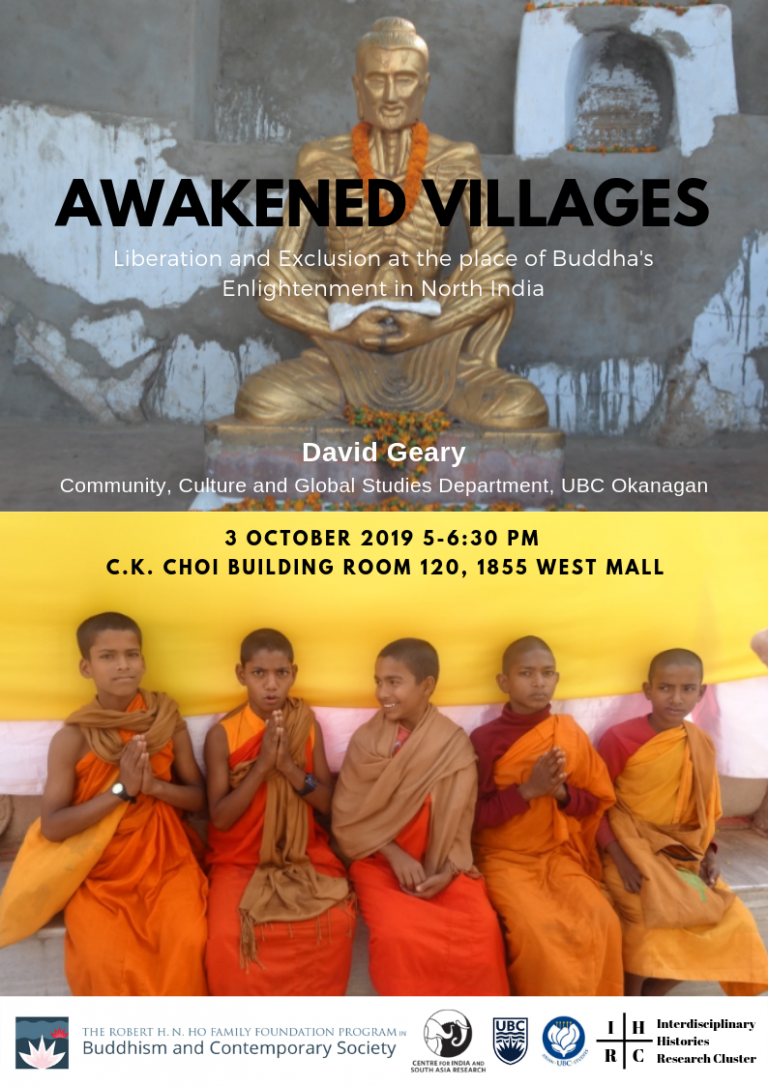This event is in collaboration with the Interdisciplinary Histories Research Cluster, the Robert H.N. Ho Family Foundation Program in Buddhism and Contemporary Society, and the Department of Asian Studies.
Abstract
The state of Bihar (the “land of vihara”) is frequently lauded by Indian political leaders and
Buddhist teachers as the “land of origins” and/or homeland of Buddhism that has given rise to a
pan-Asian, if not, global religious movement. Outside of the obvious economic benefits
generated by Buddhist pilgrimage and religious tourism in Bodh Gaya, there remains a deep
disconnect and cultural divide among efforts to rebuild an Indian Buddhist sangha, and the
sacred power inscribed on the landscape by extra-national Buddhist communities and diasporic
groups, like the Tibetans. Drawing on ethnographic research this paper will examine how some
of the Dalit villages located a short distance from the Mahabodhi Temple encapsulate the diverse
expressions, meanings and contradictions of Indian Buddhism in the early twenty-first century.
Presenter
David Geary is Associate Professor of Anthropology in the Community, Culture and Global
Studies Department at the University of British Columbia (Okanagan). He has held research and
teaching positions at IIAS (Leiden), the Antioch University Buddhist Studies Program in Bodh
Gaya, India, and at the University of Oxford. His research interests include pilgrimage, tourism
and diaspora, the spatial politics of UNESCO World Heritage, Buddhism, modernity and the
transnational politics of revival in contemporary India. He is the author of The Rebirth of Bodh
Gaya: Buddhism and the Making of a World Heritage Site (Global South Asia Series, University
of Washington Press, 2017).
